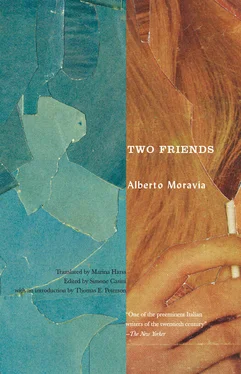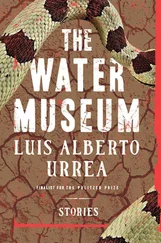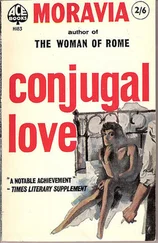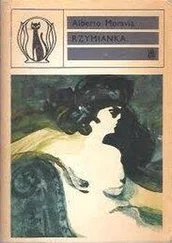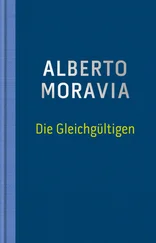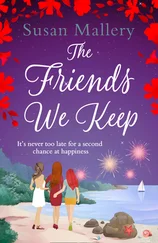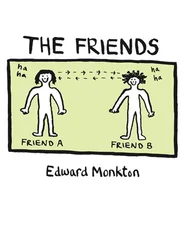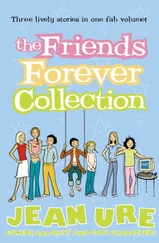“Yes.”
“I’m not waiting for anything,” he said, with sudden conviction. “I just don’t want to, that’s all.”
“Why not? After all, we’re on the right track, as you yourself have said.”
Instead of answering directly, he asked: “Why do you care? Last night, when you were drunk, you said the same thing.”
“I care because, despite everything, I feel close to you,” I said, slightly embarrassed.
He laughed. “You’re being insincere.”
“Why do you say that?” I asked, taken aback. At that moment, I felt that we were truly friends. My friendship with him seemed like a solid, immutable, poignant fact.
“Because it’s not true … As they say, ‘in vino veritas’ … Last night you said that we were enemies, or at least rivals … and that you had always felt yourself to be my enemy … God knows why.” And as he said this he chuckled, pouring himself another glass of whiskey.
I felt embarrassed. It was true, he was right; how could I have forgotten? “Well,” I tried to explain, “I feel that I am both your friend and your enemy … I’m your enemy because in a way you are mine.”
“Am I?” he said, staring at me. “Not at all … I don’t understand you … Why would I be your enemy?”
“Come on, now,” I said, with some effort, “you don’t claim to be my friend, do you?”
I awaited his response with a deep, painful sense of uncertainty. For some reason that I did not understand I hoped that he would respond affectionately:
236*
“Of course I’m your friend.” I knew that if he said that I would throw my arms around his neck and embrace him. Instead, he said, with insulting detachment: “I’m neither your friend nor your enemy … We’re mere acquaintances.”
I felt profoundly mortified, and at the same time angry at myself for feeling this way. I cared about his friendship and was hurt to hear him deny it. But his excessive indifference also confirmed my belief that he was not sincere, at least not completely, and made me think that his indifference was simply a new side of the obstinate hostility I had always attributed to him. “You say that,” I could not help exclaiming, “because you know that it is the answer that hurts me the most … It is the answer of an enemy.”
“I assure you,” he said, looking at his glass with his head bowed, “that you are quite mistaken.” He was silent for a moment, then continued: “You did not answer me sincerely … Why is it so important to you that I become a Communist?”
“I already told you,” I began. Then I changed tactics: “Let’s say it’s because of my enthusiasm for Communism … When you believe in something, you want others to believe in it too.”
“Fine. But why don’t you try to convince Moroni, for example, or someone else?”
“Because I don’t care about Moroni.”
“Why do you care about me but not about Moroni?”
I did not answer. Nothing I could say would serve my argument. No matter what I said, I felt obscurely, it would lead me away from the subject and facilitate Maurizio’s arguments. “Don’t you have anything to say?” he insisted after a short pause.
“I’ve said everything there is to say,” I answered, spitefully. “Do whatever you like … If you want to stay in your swamp, stay there … But I’m warning
234*
you: time passes … and soon it will be too late.” As I said this I got up excitedly.
He remained sitting and said calmly, “I want to be clear with you … Even if I had no other reason, it is enough to see how much you want me to do this to convince me not to.”
“But why?”
“Because your motives are not disinterested … that’s all. No one believes the words of a man who speaks out of self-interest.”
1) Version A, typescript p. 188
[ In this version, when Sergio reads his article for the newspaper, he feels disappointed. This is quite different from his feelings in the revised version .]
When Sergio went out the following day he realized that though the heat had intensified, the sky was now completely clear and the air was clean and crisp, with a touch of sea breeze. Sergio went directly to the newsstand across the street and bought a copy of the newspaper containing his article. He saw that it had been placed on the second page, with the local news, in small type. He felt disappointed; he had hoped that the editors would print it on the first page, as they had promised. He took the newspaper and crossed the street once again, to wait for the bus that would take him to Maurizio’s. He had called his friend the previous evening as planned, from the newspaper offices. Maurizio had said that he would expect him early the following morning, because he was leaving at noon. It was nine o’clock, so there were still three hours left.
As Sergio waited for the bus, he read the first page of the newspaper. It contained news from the front, all catastrophic despite the euphemisms used in the military communiqués, as well as several articles denouncing the war and the dangerous dualism of the incongruous alliance between the anti-Fascist government and the Germans. Everything seemed to be in order and the sun was shining; people calmly walked to and fro and a few cars circulated in both directions, brass and nickel plating gleaming in the sun. Even the faces of the other people waiting for the bus
2) Version B, typescript p. 117
[ In this version, when Sergio asks Lalla to gratify Maurizio, she accepts, unlike in subsequent versions .]
She said these words in a plangent tone, then got up and tottered to the door, opened it, and disappeared. Sergio lay on the bed, still furious, wallet in hand.
He did not wait long. Less than five minutes later, Lalla returned, closing the door behind her, and went to the mirror. Her words broke the silence: “All right, I’ll do it … I will decide what day, and in what manner … but you can tell Maurizio that I accept.”
She spoke calmly and seemed less drunk than before. Sergio got up and said, “I’m going to bed, I’m tired.”
3) Version C1, typescript pages 229, 158–160, 242
[ In this variant, the meeting takes place in the offices of the Allied radio services. The female character appears quite different from the one who will later go by the name of “Nella. ”]
I’ve spoken enough about the first important event
229
that took place in my life during the period following the end of the war. It’s time for me to touch upon the second. Until that point, I had not experienced a great love; instead I had had brief, casual relations with several young women whom I did not love. But as soon as I returned to Rome, when half the country was still occupied by the Germans and the front line still lay near Florence, during that terrible, dark, anxious time, I met a woman whom I thought I loved and who surely loved me. Her name was Nella, and she was more or less my age; I was twenty-seven years old and she was twenty-five. She was tall, taller than I, with a thin, ardent, lean face and two flaming black eyes, a pointy nose, and fleshy lips. In profile, there was something almost animal-like and thirsty about her expression. Her body was also thin and equally ardent, lean, and highly strung. This ardor
158
and muscular slenderness were her principal characteristics; she reminded me of a gamecock with long, muscular legs, alive with nervous energy, veins filled with dense blood flowing at a temperature much higher than that of most people. She had a small head atop a muscular, stiff neck, an almost flat chest, and large, coarse hands and feet. Her legs were also coarsely shaped, not fat but strong and muscular and inelegant, with thick ankles and knees. Everything about her denoted rough origins, though she did not seem to be of peasant stock, for country folk often have a sweetness and grace about them. Her roughness was more typical of the petite bourgeoisie, or shop class, and in fact she came from a family of merchants in a small town in Lazio, Anagni I think, where they sold pots and pans.
Читать дальше
